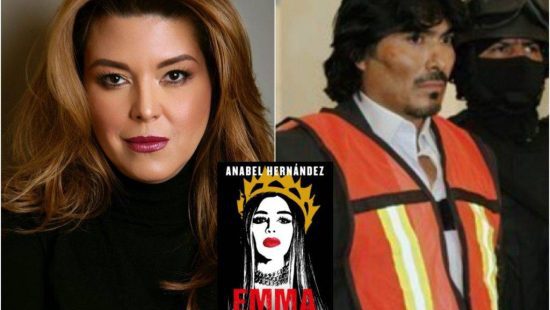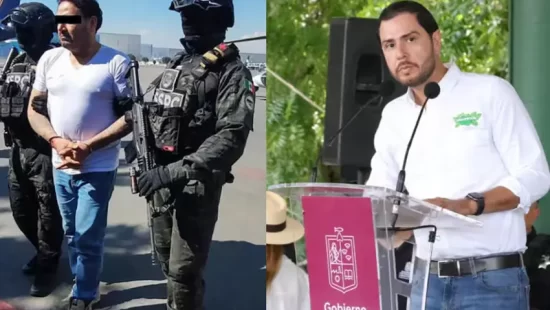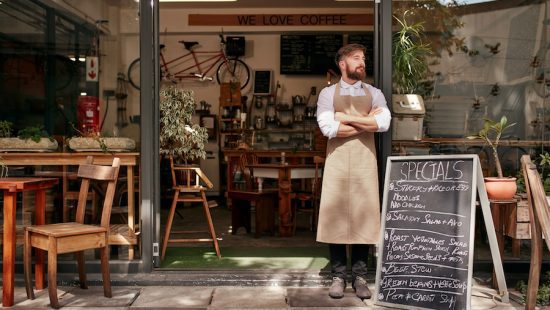“What I have learned from dying prisoners is incalculable. They have taught me priceless life lessons. My awareness, compassion, and empathy have developed. Being next to a terminally ill person leads you to understand many things,” Murillo says.
Fernando Murillo was around 10 or 11 years old when he began to commit crimes. Born in Berkeley, California, his parents were very young when he was born—his father was 16 and his mother just 21. Their immaturity, financial struggles, and the challenges of parenting led little Fernando to begin his ordeal at a young age.
“My parents divorced shortly after I was born. Initially, I lived with my mom. Later, she sent me to live with my dad because she couldn’t take care of me. I felt abandoned, like she had sold me,” says Murillo, now a Training Manager at the Palliative Care Initiative within the Humane Prison Hospice Project, an organization dedicated to providing support and care for prisoners in jails and training for those who wish to join this cause.
Murillo roamed the streets looking to survive, feeling like a burden on his parents’ lives, but he had to survive, even at that young age. “I had no respect for authority; I acted unconsciously. I wanted to be heard. I wandered through my world in search of love, in search of a hug. I was looking for a sense of belonging,” Murillo says.
That boy, if he was hungry, would steal food. If he needed clothes, he would steal them. If he had no money, he would rob. He was a powder keg, feeling invincible and… willing to fight, defend himself, and demand respect. At that young age, he had become a serious delinquent, and at 16, he was arrested and sentenced to life in prison for his crimes. After serving 20 years, he was transferred to California Medical Facility (CMF), a prison that focuses on caring for the elderly and terminally ill, among others. It was there that he first entered CMF’s hospice unit, the first of its kind in a prison setting.
“At first, my main challenge in prison was survival. I entered a very toxic, negative environment, the worst of the worst. I had come to accept that my life was over, my life in freedom. Now I had to learn to live the rest of my existence in prison. I had never experienced what it means to live; I had always experienced survival,” he says.
Murillo reflects on how unfair life is for these terminally ill prisoners. Dying, knowing that their life has ended behind bars, is not humane.”
Murillo acknowledges his mistakes, but also the mistakes of society itself. “It was like following the natural order of this society. For people like me, we don’t have support, help; people of color are the most needy, the ones who fill the prisons, and that seems to be okay, as if we were condemned to that because that’s how society is. I never thought about a second chance; even though I felt intelligent, I was too busy defending myself. I don’t know how I survived those first years in prison. Now that I think about it, when I see things more clearly, I believe I did it with grace and mercy. I was very lucky. Many people die every day. I told myself if surviving required being violent, I needed to be more violent than the others,” he adds.
Being in prison is no easy task. You have to be a ‘scholar’ of the environment, develop strategies, take advantage, manage the power you have, and deal with the guards. “If people think that the environment in prison is going to rehabilitate prisoners, they are very mistaken. It’s a suffocating space; it chokes us,” he says.
When he was transferred to CMF, his life changed; he began to feel more freedom and was offered a job in the hospice unit. He thought about it many times and was initially resistant. He believed he wasn’t ready for such a difficult yet human environment. He ultimately decided otherwise; in 2015, he began training and started working in something that would change his life.
“What I have learned from dying prisoners is incalculable. They have taught me priceless life lessons. My awareness, compassion, and empathy have developed. Being next to a terminally ill person leads you to understand many things. For me, as a child, a teenager who criminalized his life in search of love, of a hug, now I could give that to them, and they were grateful,” he says.
Murillo reflects on how unfair life is for these terminally ill prisoners. Dying, knowing that their life has ended behind bars, is not humane.
“They are alone. What we do is be present when they need it. We provide support when they are most vulnerable, responding to their suffering. We don’t offer them another life; we are there as companions,” he adds.
This situation saddens Murillo. “Let me talk about conditional citizenship. You have to be how the system wants you to be. If you are different, act differently, then you are a criminal. Most people of color are not invited to the American success; we cannot be part of the American dream. We are not welcome,” he says.
For many prisoners, the support they receive from Murillo and the organization he works with—the Humane Prison Hospice Project—is all they have. No family, no external support, and the motto “nobody dies alone” shapes the objectives of their work.
Murillo was either lucky or… destined. A feature published in The New York Times about his work in the hospice gained sympathy in 2020 from Governor Gavin Newsom, leading to a pardon and the opportunity to “reintegrate into society.”
“Reintegration? Even when free, we are people who don’t fit in outside prison. We can’t get jobs, find a place to live, attend school trips with our children, or secure financing. We are marked for life. After 24 years in prison, I have to learn how to live outside, how to manage finances, how to behave in public, how to assimilate technology. Everything has been new to me. It’s like I’m living another life,” says Murillo.
After everything he has lived through, his challenges, and his survival, he thinks about his duty to contribute to transforming this society. “The question must always be there: ‘How can I help?’ I must try to do my best to help others,” he concludes.
TIPS FOR CARING FOR SOMEONE WHO IS DYING
-Take time out to care for that person.
-Care for that person as you would like to be cared for in that situation. We all end up there, one way or another.
-Gather with positive friends.
-Develop a healthy life.
Humane Prison Hospice Project
They seek to transform the way incarcerated people die through education, advocacy, and training to support their peers as caregivers and grief companions.
What they do
They are developing a humanitarian, cost-effective, and restorative justice solution to ensure that those aging and dying in prison receive compassionate care.








